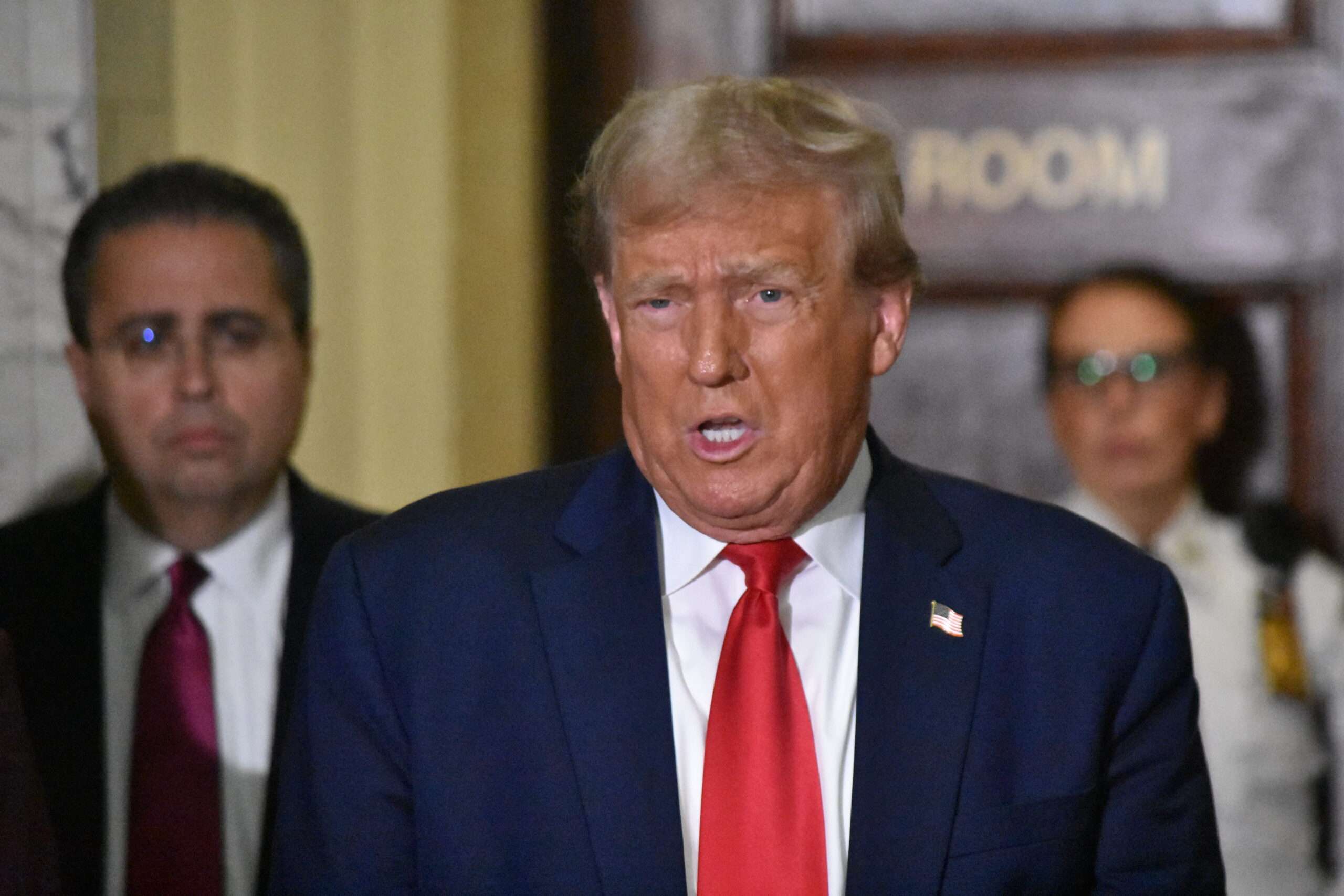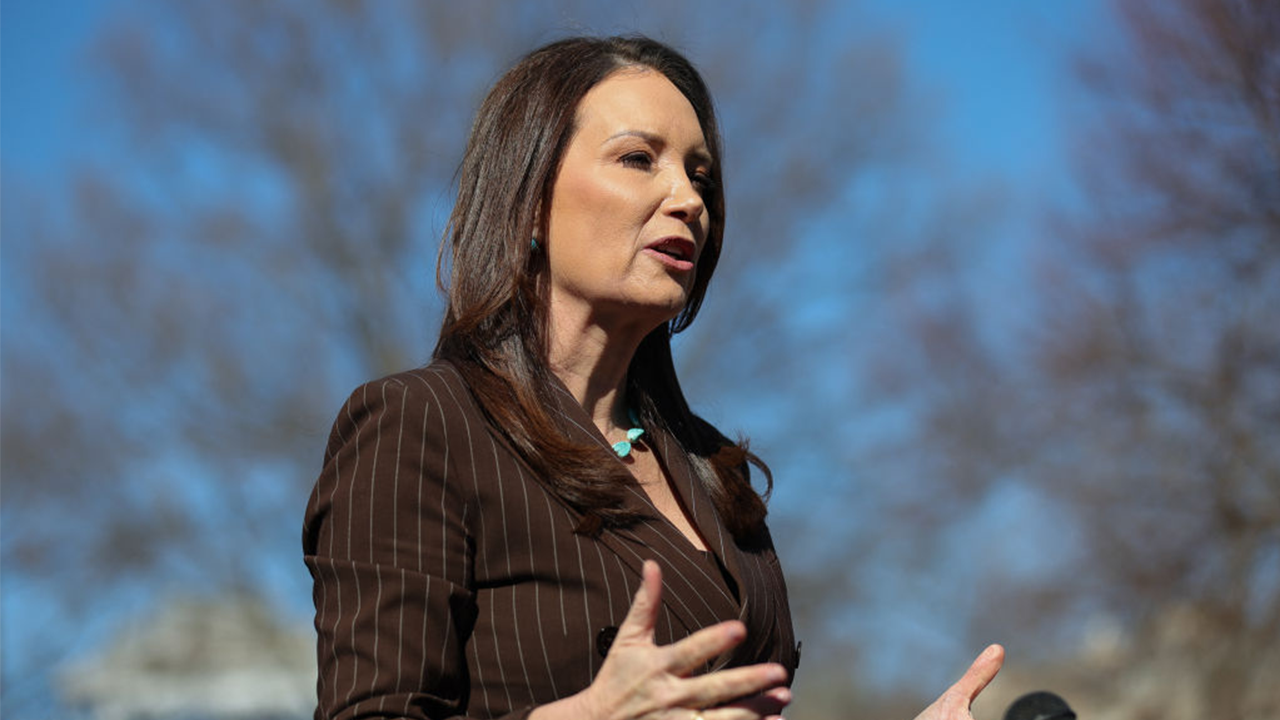Colorado
Colorado Supreme Court Rules Trump is Ineligible for the Presidency Under Section 3 of the 14th Amendment


Today, the Supreme Court of Colorado ruled that Donald Trump is ineligible to be on the ballot for the 2024 presidential election because he is disqualified by Section 3 of the 14th Amendment. Section 3 states that “No person” can hold any state or federal office if they had previously been “a member of Congress, or… an officer of the United States” or a state official, and then “engaged in insurrection or rebellion against the same, or given aid or comfort to the enemies thereof.” The Colorado court ruled that Trump “engaged in insurrection” because of his role in instigating the January 6, 2021 assault on the Capitol, and is therefore disqualified. This—and the lower court ruling it reviewed—are the first decisions that address the Section 3 case against Trump on the merits; several previous rulings in other states have dismissed Section 3 claims against Trump on varous procedural grounds.
I can’t give anything like a complete analysis of the 213 pages of majority and dissenting opinions here. But I think the 4-3 majority got it right. Trump is indeed ineligible.
The per curiam majority opinion does an excellent job of handling all the major issues at stake: whether the January 6 attack was an insurrection, whether Trump’s role in it was extensive enough to qualify as engagement, whether the president is an “officer of the United States,” and whether Section 3 is “self-executing” (that is, whether state governments and courts can enforce it in the absence of specialized congressional legislation). In the process, the justices partly affirmed and partly overruled the trial court decision, which held that Trump did indeed engage in insurrection, but let him off the hook on the badly flawed ground that Section 3 doesn’t apply to the president.
The case is now likely headed to the US Supreme Court. The justices may well hear it on an accelerated schedule, so as to resolve the case before we go too far into the GOP primary process. The Colorado Court has stayed its decision until at least January 4, to allow time for appeals to the US Supreme Court.
The 4-3 vote is not as close as it looks. Two of the three dissenting justices did so on the ground that Colorado state election law doesn’t give the state courts the authority to decide Section 3 issues. They did not endorse any of the federal constitutional arguments on Trump’s side. And these state statutory issues probably cannot be reviewed by the US Supreme Court, because state supreme courts are the final arbiters of the meaning of state law (with a few exceptions that do not apply here).
I think it’s fairly obvious that the January 6 attack on the Capitol amounts to an insurrection, and the Colorado justices also concluded this is not a close issue:
[F]or purposes of deciding this case, we need not adopt a single, all-encompassing definition of the word “insurrection.” Rather, it suffices for us to conclude that any definition of “insurrection” for purposes of Section Three would encompass a concerted and public use of force or threat of force by a group of people to hinder or prevent the U.S. government from taking the actions necessary to accomplish a peaceful transfer of power in this country.
This is an important point that I have tried to highlight in some of my own writings about the case. January 6 qualifies as an “insurrection” even under a fairly narrow definition of the term that is limited to the use of force to take over the powers of government. We don’t need to rely on much broader definitions advocated by some legal scholars.
The Colorado Court didn’t address the argument that there was no insurrection because the rioters and Trump sincerely believed he won the election, and therefore thought they were acting to protect the Constitution. But, under that reasoning, most of the ex-Confederates whom Section 3 was originally enacted to disqualify would also have been exempt, since they sincerely believed the secession of the southern states was legally authorized by the Constitution (and they had far better legal arguments for their position than Trump for his).
As I see it, the hardest issue raised in the case is whether Trump’s involvement in the insurrection was extensive enough to count as “engaging” in it. On this question, the justices affirmed the detailed and compelling analysis of the district judge, much of which rests on factual findings that can only be reversed for “clear error.” They also emphasized this important point:
As our detailed recitation of the evidence shows, President Trump did not merely incite the insurrection. Even when the siege on the Capitol was fully under way, he continued to support it by repeatedly demanding that Vice President Pence refuse to perform his constitutional duty and by calling Senators to persuade them to stop the counting of electoral votes. These actions constituted overt, voluntary, and direct participation in the insurrection.
As I pointed out in a recent Bulwark article about the case, this goes beyond encouraging violence (as Trump did before the attack) or failing to try to stop it. It amounts to using the attack as leverage to try to force Congress to keep him in power. Using a violent insurrection in this way surely qualifies as “engaging in it,” even if Trump’s other actions fell short of doing so. Even if this somehow still falls short of “engagement,” this and Trump’s other actions surely at least gave “aid and comfort to the enemies” of the United States.
The court also gave a thorough and compelling explanation for its rejection of the argument that the president is not an “officer of the United States” covered by Section 3. Here is a key excerpt:
When interpreting the Constitution, we prefer a phrase’s normal and ordinary usage over “secret or technical meanings that would not have been known to ordinary citizens in the founding generation.”District of Columbia v. Heller, 554 U.S. 570, 577 (2008). Dictionaries from the time of the Fourteenth Amendment’s ratification define “office“ as a “particular duty, charge or trust conferred by public authority, and for a public purpose,” that is “undertaken by . . . authority from government or those who administer it.” Noah Webster, An American Dictionary of the English Language 689 (Chauncey A. Goodrich ed., 1853); see also 5 Johnson‘s English Dictionary 646 (J.E. Worcester ed., 1859) (defining “office” as “a publick charge or employment; magistracy”);United States v. Maurice, 26 F. Cas. 1211, 1214 (C.C.D. Va. 1823) (No. 15,747) (“An office is defined to be ‘a public charge or employment,‘ . . . .”). The Presidency falls comfortably within these definitions…..
The preference for “ordinary meaning” is a standard tenet endorsed by most originalist judges. The quote from Heller to this effect is by the late Justice Scalia, a major icon of originalist jurisprudence.
And it’s pretty obvious that the ordinary meaning of “officer of the United States” includes the holder of the most powerful office in the federal government! As the Colorado Supreme Court puts it, “President Trump asks us to hold that Section Three disqualifies every oath-breaking insurrectionist except the most powerful one and that it bars oath-breakers from virtually every office, both state and federal, except the highest one in the land. Both results are inconsistent with the plain language and history of Section Three.”
The opinion also addresses the argument that the presidency was excluded because it wasn’t specifically listed, but some other positions (e.g.—members of Congress) were:
It seems most likely that the Presidency is not specifically included because it is so evidently an “office.” In fact, no specific office is listed in Section Three; instead, the Section refers to “any office, civil or military.” U.S. Const. amend. XIV, § 3. True, senators, representatives, and presidential electors are listed, but none of these positions is considered an “office” in the Constitution. Instead, senators and representatives are referred to as “members” of their respective bodies.
I would add that senators, representatives, and electors are less clearly officers than the president, because they do not have individual authority to issue orders to subordinates, a point I expounded on in my Bulwark article.
The Court similarly addressed the issue of whether Section 3 is self-executing. The key point here is that every other part of the Fourteenth Amendment is considered self-executing, despite the fact that Congress can provide for additional enforcement through its power to enact “appropriate” enforcement legislation under Section 5. There is no good reason to exempt Section 3 from this general principle:
The Supreme Court has said that the Fourteenth Amendment “is undoubtedly self-executing without any ancillary legislation, so far as its terms are applicable to any existing state of circumstances.” The Civil Rights Cases, 109 U.S. 3, 20 (1883). To be sure, in the Civil Rights Cases, the Court was directly focused on the Thirteenth Amendment, so this statement could be described as dicta. But an examination of the Thirteenth, Fourteenth, and Fifteenth Amendments (“Reconstruction Amendments”) and interpretation of them supports the accuracy and broader significance of the statement….
There is no textual evidence that Congress intended Section Three to be any different…. Furthermore, we agree with the [plaintiffs] that interpreting any of the Reconstruction Amendments, given their identical structure, as not self-executing would lead to absurd results. If these Amendments required legislation to make them operative, then Congress could nullify them by simply not passing enacting legislation. The result of such inaction would mean that slavery remains legal; Black citizens would be counted as less than full citizens for reapportionment; non-white male voters could be disenfranchised; and any individual who engaged in insurrection against the government would nonetheless be able to serve in the government. government, regardless of whether two-thirds of Congress had lifted the disqualification.
Justice Samour, the only one of the three dissenters who based his position on any federal constitutional issue, argues that Section 3 cannot be self-executing because making it so would deprive candidates for office of the “due process of law.” But the Due Process Clause of the Fifth Amendment only provides a guarantee of due process before a person can be deprived of “life, liberty, or property.”
Disqualification under Section 3 doesn’t threaten any of these. Loss of eligibility for holding various types of public offices pretty obviously doesn’t threaten anyone’s life or property rights. And it isn’t a threat to liberty, either. No one claims that the Twenty-Second Amendment deprives people of “liberty” merely because they become ineligible for the presidency if they have already served two terms.
The Supreme Court has held (wrongly in my view) that a degree of constitutional due process is required for deprivation of some types government benefits, particularly those that provide essential needs, such as welfare benefits for the poor.
Eligibility for the presidency isn’t an essential need in the same way. If Trump is no longer eligible for the presidency, he isn’t going to starve or become homeless. And even when it comes to deprivation of vital welfare benefits for the poor, the Supreme Court has held that due process requires only an administrative hearing, not a “.” The five-day trial held by the district court in the Colorado case in which both sides presented extensive evidence and expert testimony easily meets any plausible due process requirements for a case like this, even if we assume that the Due Process Clause applies (which I think it does not).
I am not qualified to comment on the Colorado statutory issues raised by the other two dissenting justices. To me, it would be strange if the law did not give state courts the power to adjudicate cases over Section 3 disqualification, just as they routinely consider other candidate eligibility issues. But I am no expert on Colorado election law, and therefore might be missing something. I will only reiterate that the federal Supreme Court probably lacks the power to review the Colorado state court’s resolution of these issues of state statutory law.
The same point applies to the Colorado court’s conclusion that, under state law, candidates ineligible for the presidency are barred from appearing on primary ballots, as well as those for the general election.
More can be said. But this post is already too long, and I will stop—for now. I will probably have more to say as this case moves on to what is likely to be review by the federal Supreme Court.

Colorado
Boulder International Film Festival considers impact of possible Sundance move to Colorado

Boulder International Film Festival, BIFF, rolled out the red carpet for another successful year. Celebrities, like actress Jane Lynch, came to Boulder to receive awards and talk about films.
“Everybody is so nice. This is such a wonderful town,” Lynch told CBS News Colorado.
CBS
She received the Entertainer of the Year award on Saturday night. Lynch was one of 60 film industry celebrities who attended the festival. BIFF attracts about 25,000 people every year.
“We have such great, enthusiastic audiences. Filmmakers come back year after year, and it’s just so heartwarming to see everyone,” said Robin Beecks during a BIFF event.
Robin Beecks, and her sister Kathy, plan the entire festival from their offices on Pearl Street. When Boulder decided to make a bid for the Sundance Film Festival, the Beecks were among the stakeholders brought into the conversation.
“Your first reaction is, ‘What?’ How will that work?’ said Kathy Beecks.
The sisters have had several conversations with community leaders and Sundance organizers, and are happy to see Boulder on the shortlist of contenders for the possible move. (The festival currently takes place annually in Utah.)
CBS
“There are still question marks, but we think we can make it work, and we think there could be some benefits,” Kathy added.
“Is Boulder big enough for two festivals?” CBS News Colorado’s Shaun Boyd asked.
“We do think the town is big enough because there is a lot of outlying…you can spread a bit,” Robin Beecks responds.
Sundance hosts about 86,000 visitors, so organizers are looking at hotel rooms, restaurant space, and venues for screenings.
“We have a lot of historical knowledge over twenty years about how to make things work in this town,” Robin said.
These festivals attract very different audiences. BIFF shows films that have already been released, but probably haven’t made it to Colorado yet. Sundance requires its films premiere at the festival.
BIFF would have to change its dates to accommodate Sundance, but over all Kathy and Robin are looking at the ways the two festivals could work together.
“It’s important to them that we are healthy, that we grow and thrive,” Robin added.
The Beecks see economic viability not only for their own festival, but for Boulder and the entire state.
Colorado
Colorado State Rams to face Memphis in NCAA Tournament

Watch CBS News
Be the first to know
Get browser notifications for breaking news, live events, and exclusive reporting.
Colorado
NHL On Tap: Rantanen returns to Colorado for 1st time with Stars | NHL.com

Games of the day
Dallas Stars at Colorado Avalanche (3:30 p.m. ET; MAX, truTV, TNT, ALT, SN, TVAS)
Mikko Rantanen will make what is expected to be an emotional return to Denver and play his first game in Colorado since the forward was traded by the Avalanche to the Carolina Hurricanes in a three-team deal on Jan. 24. After 13 games with the Hurricanes, Rantanen was traded again, from Carolina to Dallas just prior to the NHL Trade Deadline on March 7. Rantanen played 10 seasons with the Avalanche and had 64 points (25 goals, 39 assists) in 49 games this season prior to the initial trade. In three games with Dallas, where he signed an eight-year, $96 million contract ($12 million average annual value) starting next season, Rantanen has two goals and an assist. The Stars (42-21-2) are trying to hold off the Avalanche (40-24-3) for second in the Central Division; Dallas enters three points ahead. The teams are likely to meet in the Western Conference First Round of the Stanley Cup Playoffs. Colorado center Nathan MacKinnon leads the NHL with 102 points (27 goals, 75 assists) in 67 games, two points ahead of Edmonton Oilers forward Leon Draisaitl, who has 100 points (49 goals, 51 assists) in 66 games. MacKinnon has been held off the score sheet each of his past two games; he has not gone without a point in three consecutive games this season.
Vegas Golden Knights at Detroit Red Wings (1 p.m. ET; SCRIPPS, MAX, truTV, TNT, SN1, TVAS)
Jack Eichel has an opportunity to extend his point streak to nine games in the second game of a back-to-back; the center scored in a 4-3 shootout loss at the Buffalo Sabres on Saturday to give him 11 points (two goals, nine assists) on an eight-game run. Vegas (39-19-8) has lost three of four (1-1-2) but is first in the Pacific, five points ahead of the Los Angeles Kings. Detroit (31-29-6) is trying to climb back into the playoff race after a six-game losing streak. The Red Wings trail the New York Rangers by four points for the second wild card in the Eastern Conference with the Montreal Canadiens (three points) and Columbus Blue Jackets (two points) also ahead of them. Detroit is trying to qualify for the playoffs for the first time since 2015-16.
Edmonton Oilers at New York Rangers (7 p.m. ET; MSG, SNW, SNO, SNE, TVAS)
Draisaitl needs one goal to reach 50 for the fourth time in 11 seasons; the Oilers forward is making a strong case to win the Hart Trophy as League MVP for the second time (2019-20). He scored both goals in a 2-1 overtime win at the New York Islanders on Friday to extend his point streak to 17 games (26 points; 14 goals, 12 assists) and reach 100 points for the sixth time in his career. Edmonton captain Connor McDavid is on a 10-game point streak (14 points; two goals, 12 assists). The Oilers (38-24-4) can regain second place in the Pacific with a win; they are one point behind the Kings, who won 1-0 in overtime against the Nashville Predators on Saturday. The Rangers (33-28-6) are playing the second of a back-to-back following a 4-0 win at Columbus on Saturday and are looking to tighten their grip of the second wild card in the East. Forward Artemi Panarin had a goal and assist in the win for New York to extend his point streak to eight games (12 points; six goals, six assists). The Rangers are 9-6-2 since acquiring center J.T. Miller in a trade from the Vancouver Canucks on Jan. 31. Miller has 18 points (seven goals, 11 assists) in 17 games with New York.
-

 News1 week ago
News1 week agoGene Hackman Lost His Wife and Caregiver, and Spent 7 Days Alone
-

 Politics1 week ago
Politics1 week agoRepublicans demand Trump cut American legal association out of nominee process
-

 Politics1 week ago
Politics1 week agoAgriculture secretary cancels $600K grant for study on menstrual cycles in transgender men
-

 News1 week ago
News1 week agoStates sue Trump administration over mass firings of federal employees
-

 News1 week ago
News1 week agoTrump Seeks to Bar Student Loan Relief to Workers Aiding Migrants and Trans Kids
-

 News6 days ago
News6 days agoGrieving Covid Losses, Five Years Later
-

 World6 days ago
World6 days agoUkraine accepts 30-day ceasefire in US talks: What it means for Russia war
-

 News6 days ago
News6 days agoUnruly Passenger Swallows Rosary Beads on American Airlines Flight



















